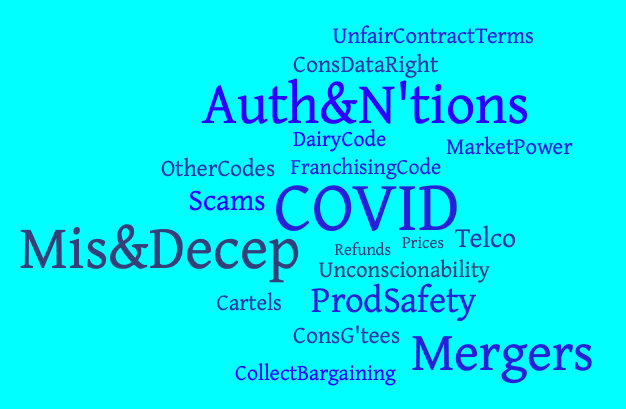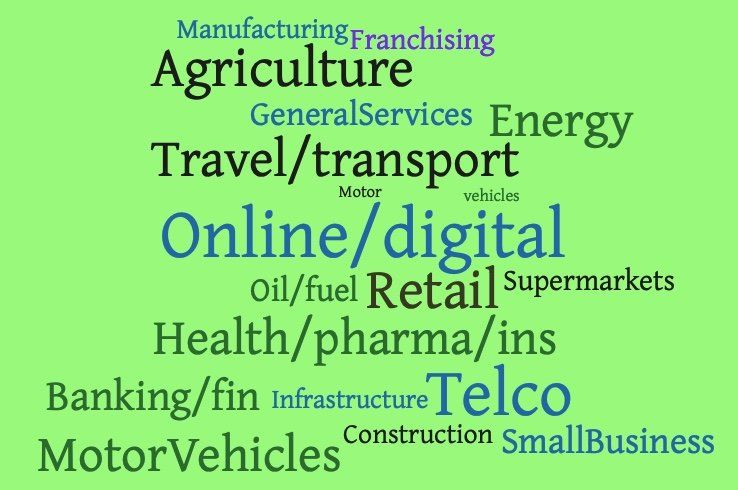I know what you did last Summer (and Spring, Winter & Autumn): what the ACCC got up to in 2020
Key words: ACCC, enforcement
Competition law in Australia adheres to a calendar of sorts, with February marking the annual release of the ACCC’s enforcement priorities. These are typically published via a speech from the Chair at a specific event and then duly reported both within the industry and more broadly.
But the ACCC’s enforcement priorities don’t always provide insight into what is happening on the ground. For a start, there’s a lag: serious cases can take years to get to court. For example, criminal cartels were quite the focus for the ACCC for some time before they gave rise to activity worthy of reporting. Second, the enforcement priorities don’t tend to highlight the ACCC’s bread and butter, which can mean the daily work of Australia’s competition regulator is overlooked. Third, we need to remember the ACCC wears many hats, not just that of “enforcer”. Finally (something I imagine we can all relate to), there can be significant gap between one’s plans and reality. After all, in February 2020, did the ACCC really think that COVID would being its leading topic of conversation?
With these limitations in mind, I spent a little time going through all 283 ACCC media releases for 2020, trying to ascertain what caught its attention both in terms of issues and industries. The analysis gives rise to some interesting insights (and allowed me to try making my own word clouds).
The big issues
Not only did COVID “win” first place in terms of mentions, it provided the foundation for the second-place getter: notifications and authorisations. It’s unusual for the CCA’s statutory immunity processes to feature so heavily, but this largely reflected the significant number of authorisations filed by various industries in response to COVID. In a six week period, the ACCC received more authorisation applications than it typically does in a year.
The two other key issues of similar magnitude were misleading & deceptive conduct (which really IS the bread and butter of the ACCC) and mergers. I found it a little surprising that there were almost as many releases focusing on mergers as there were on s18 matters. When you consider that most mergers are dealt with on a strictly confidential basis, it suggests the ACCC is more active in this space than many realise.
Next cab off the rank – no pun intended – was product safety. While the ACCC covered a broad range of safety concerns, motor vehicles featured strongly. This was mostly due to the ACCC’s efforts to publicise issues with Takata airbags, although there was also a fair amount of focus on quad bikes.
It’s also interesting to consider the issues that
didn’t feature that often: for example, cartels were the subject of significantly fewer releases than the various codes. (Indeed, until December, the Dairy Code featured more frequently in media releases than did the ACCC’s favourite
bête noir, conspiring competitors.) And the major changes to the CCA that occurred in 2017 have yet to trigger much in the way of activity: while market power issues featured occasionally, there was not a single mention of concerted practices. Similarly, class exemptions warranted just one media release.
Also, given the ACCC is very actively campaigning for the imposition of penalties for unfair contract terms, it was surprising to see this issue feature so rarely.
Given the year that was, concerns about refunds also seemed strangely low-profile (even though the travel & transport industries featured quite strongly). It will be interesting to see whether this issue continues to pass by unnoticed in 2021.
What industries were in the gun?
It’s not a great shock to learn that online & digital businesses were the ACCC’s main focus of attention. This was the result of a few factors, especially the ongoing fallout from the ACCC’s digital platforms inquiry and the huge swing to online purchasing in the wake of COVID.
Similarly, telco – especially the NBN – featured strongly. The ACCC’s role in such matters is often more that of a regulator or even just commentator rather than enforcer: as such, it regularly reported on NBN take-up, speeds and pricing.
Outside the immediate world of technology, a number of industries featured strongly. The following averaged just under a media release a fortnight: motor vehicles (often due to the product safety issues mentioned above); retail; travel & transport (frequently due to COVID); energy; health (including pharmaceuticals, as well as health insurance); and agriculture. Agriculture might seem the odd one out here, but its inclusion reflects the ACCC’s enforcement priorities over recent years (not to mention the clear focus on the Dairy Code last year).
And those industries which didn’t get as much ACCC attention as one might expect? Well, franchising didn’t receive a whole lot of focus: given the massive case launched against RFG towards the end of the year, and the ongoing concerns about how franchisees are to make enough money to allow both themselves and their employees to eat, this strikes me as something of a surprise.
Finally, it’s notable that supermarkets rated quite low on the ACCC's hit parade. After years of being on the receiving end of ACCC opprobrium, perhaps the entire country had a renewed appreciation for our purveyors of toilet paper and other wondrous goods.
Disclaimer






